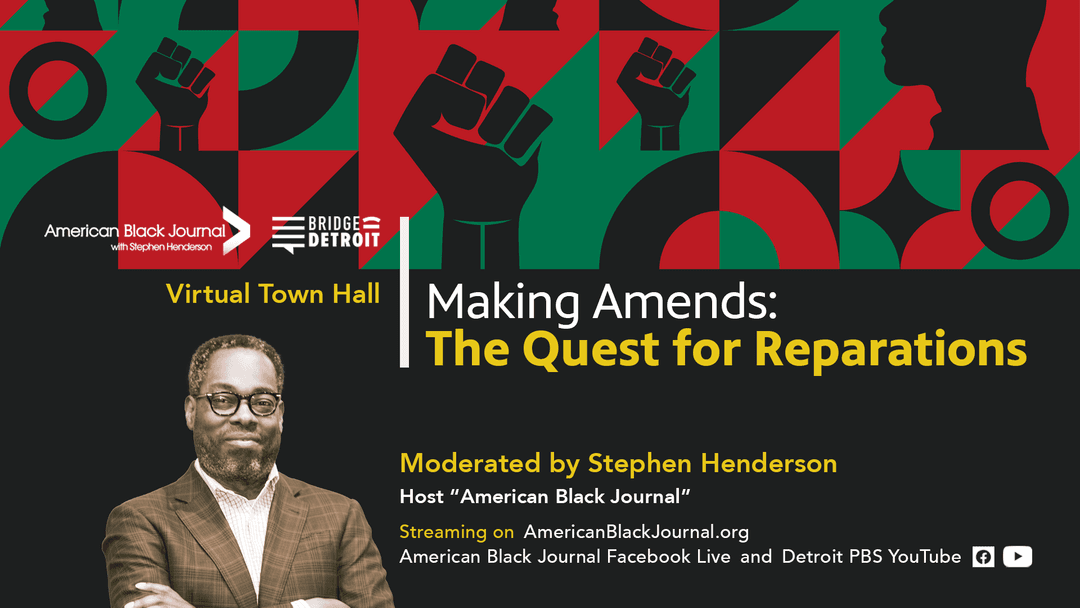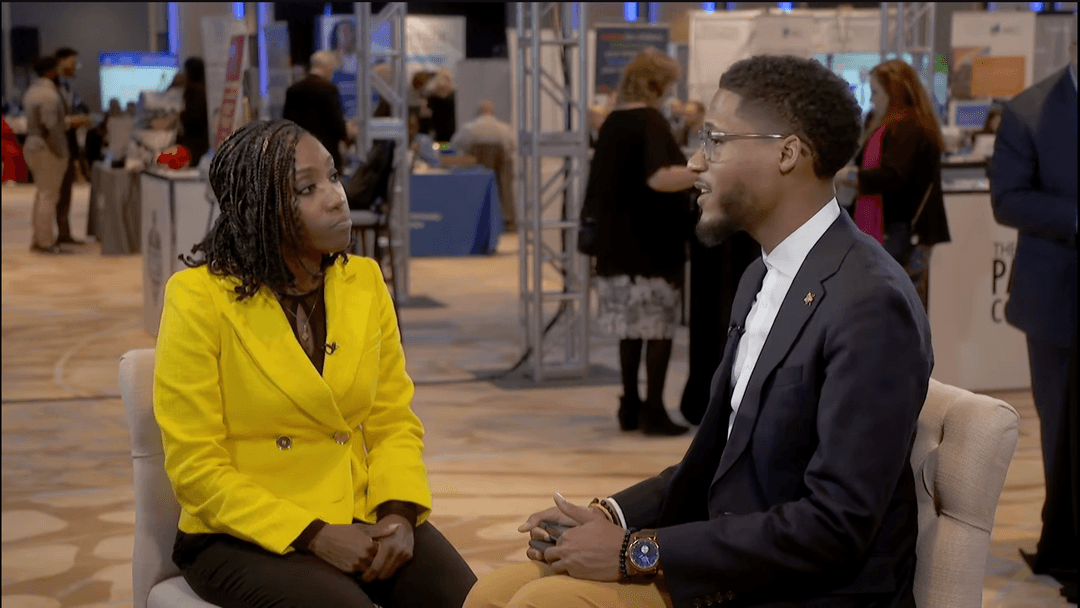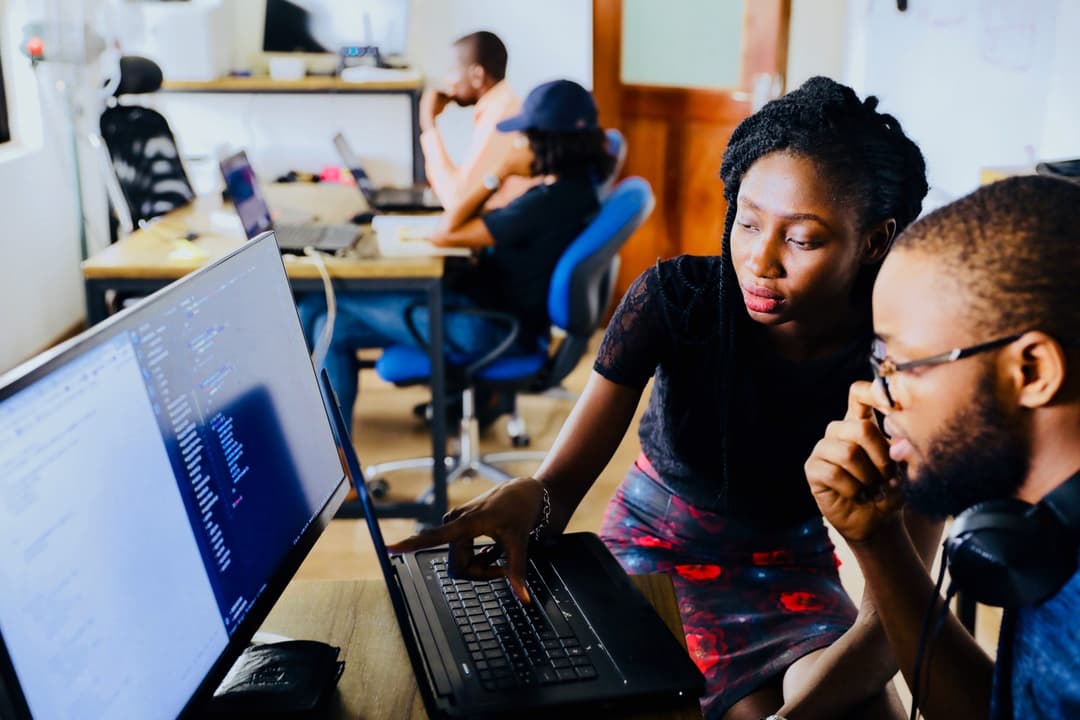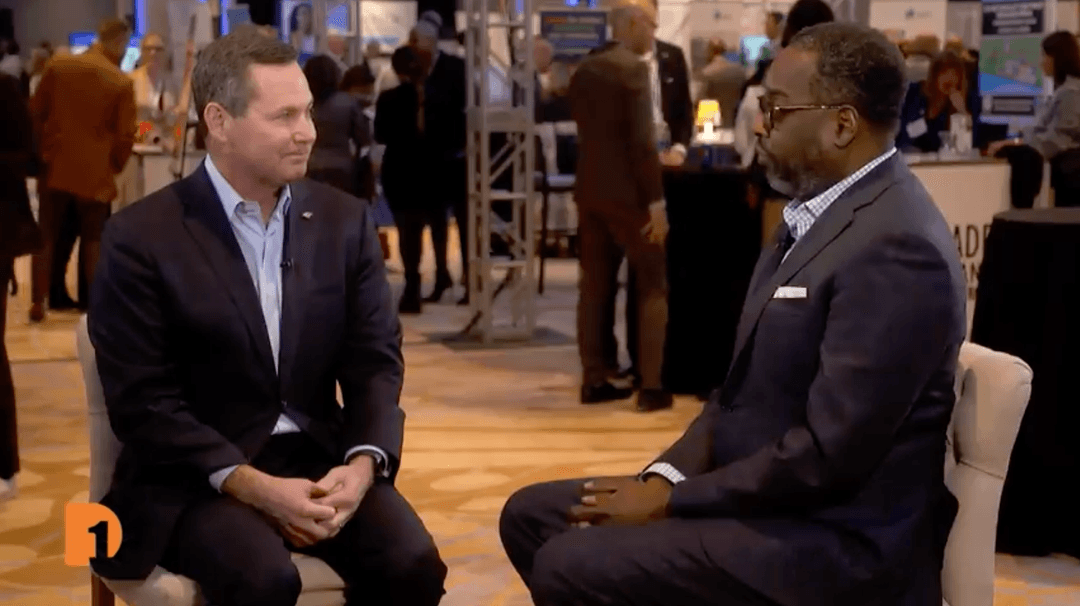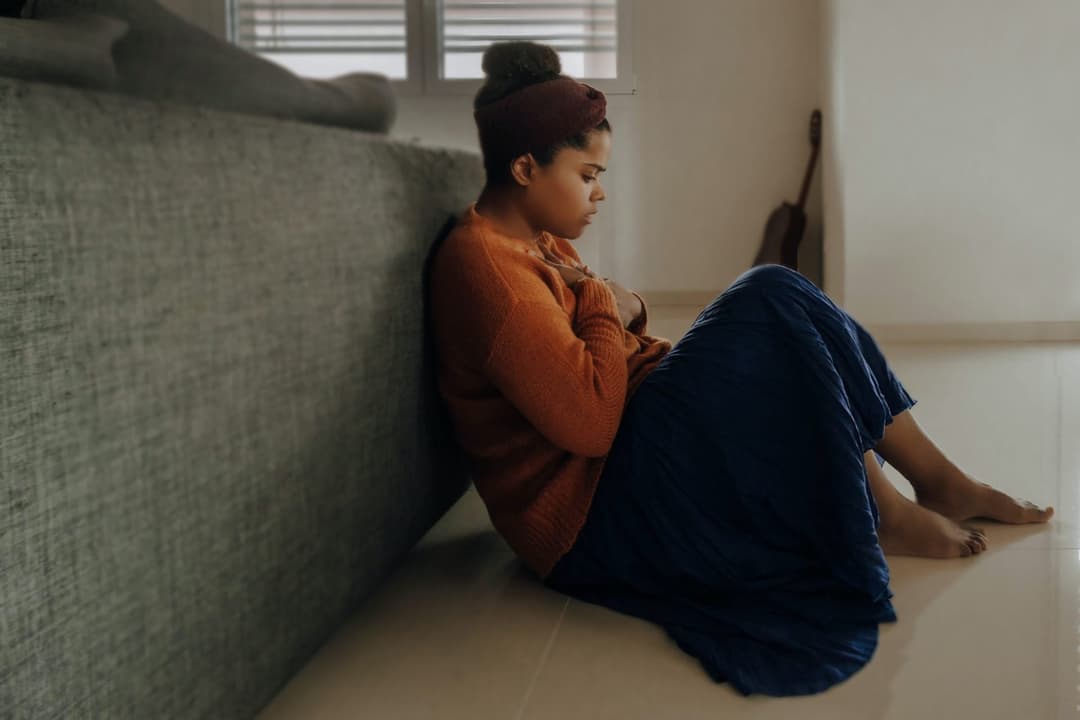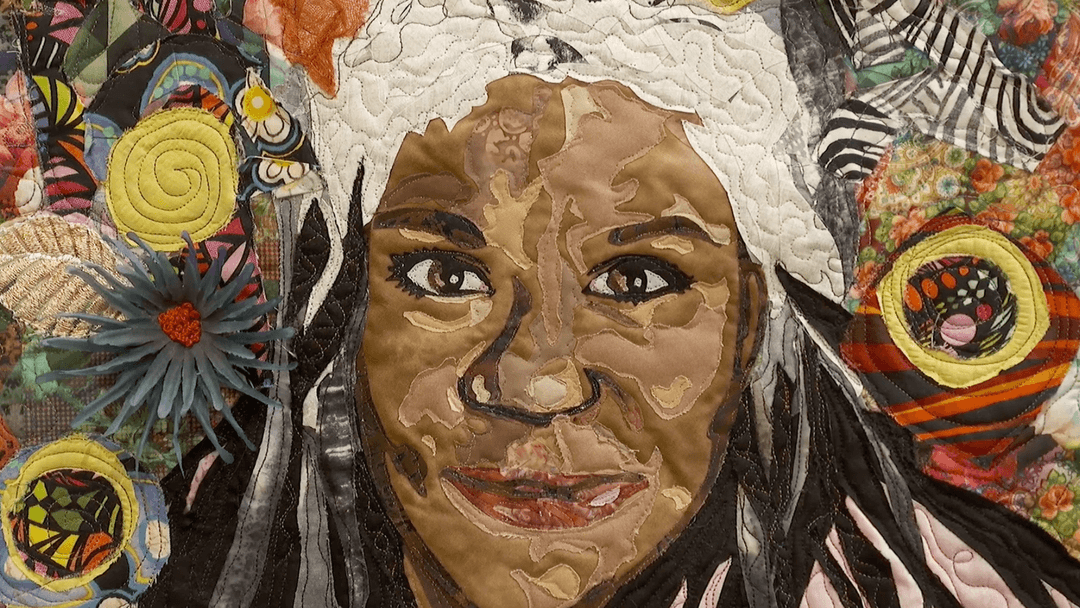Detroit United Front forms to build better equity, inclusion for Black businesses
Mar 15, 2022
Three Detroit-based organizations leading the way for Black businesses and entrepreneurs in the city have joined forces to create Detroit United Front to connect Black businesses with resources around the city. The National Business League (NBL) Detroit Chapter, the Detroit Black Chamber of Commerce (DBCC) and the Booker T. Washington Trade Association (BTWTA) created Detroit United Front to advocate for better economic equality and inclusion for Black businesses in Detroit.
“American Black Journal” host Stephen Henderson sits down with NBL CEO Ken Harris and DBCC President Danielle Benson to talk about the mission of Detroit United Front, as well as the need for education, training and capital resources. Plus, they take stock of and share their thoughts on the current state of Black businesses in Detroit.
Full Transcript:
Stephen Henderson: So I want to start with this just giving you a chance to explain what you’re doing and why you’re doing it now in the city of Detroit. Ken, I’ll start with you.
Ken Harris, National President & CEO, The National Business League: Yeah, no problem. I mean, I think it’s time it’s necessary. You think coming out of this Covid environment, everyone’s been isolated, marginalized to a certain degree. So what a perfect time to show unity for the first time in history.
Ken Harris: We have merged together in a unified effort, three historic and legendary Black business organizations. And so we have now the National Business League Detroit chapter, the Booker T. Washington Trade Association, which has been around since the 1930s, and also the Detroit Black Chamber of Commerce, which has been around since the early 2000s. And now they’re the Detroit United front.
Ken Harris: And I tell you, the excitement on Monday was electric. Stevens standing-room-only crowd line was wrapped around the corner at the DoubleTree Suites, partially owned by Emmett Moulton. And you couldn’t even get into that place.
Ken Harris: So there is an excitement about unity, unification and coming around this effort to promote Black business and also challenge the inequities and scenarios of lack of diversity and inclusion in the city of Detroit. And so we’re going to do it as a united front. And so we’ve got a tremendous group of young leaders that’s ready to go.
Stephen Henderson: Danielle, talk about what the agenda looks like for this. Ken mentioned the inequality that we still see playing out in the business environment in Detroit, despite the fact that this is, you know, an overwhelmingly African American city, it is home to just so many different African American-owned businesses. We still don’t have a level playing field. We still don’t get the opportunities that we’re supposed to.
Danielle Benson, President, Detroit Black Chamber of Commerce: Absolutely. And that is what we are going to do. We are going to be the Detroit United front is going to be that pillar, that point of reference that individuals can go to, that they know that we’re coming if their situations with their resources, we want to be the connector for that. If we know that there are situations where there are challenges within African Americans and Blacks not being able to be in leadership, we want to be the voice.
Danielle Benson: We are just going to serve as that voice and that connector for Black businesses. That’s our ultimate goal is to just connect. We want to be able to buy land. A lot of times people are just leasing. We want to be able to train and teach people about going back to our roots and the foundation of that.
Danielle Benson: You know, we’re supposed to be out here doing great, wonderful things. A lot of times people are not able to tap in because they don’t know about the resources. We want to be that organization, that’s going to be that bright light. And they know that we’re coming and we’re coming strong and we’re coming and we’re not afraid to stand up to whatever challenges may come our way.
Stephen Henderson: I want to talk about capital because I think you can’t talk about business or inequality without talking about capital. Access to capital is a problem for all businesses, we’ll start there, but especially for Black-owned businesses. This is just a critical part of the difference between success and failure. I want to talk just a little about how this kind of organization can help, especially smaller, Black-owned businesses with that problem, Ken.
Ken Harris: Yeah, no question about it. And look, we’re not reinventing the wheel, right? So, you know, this organization has really been a connector for traditional lenders. CDFI’s, MDI’s, minority depository institutions, Black-owned banks. We only have one now in the city of Detroit. But what we see as systematic is historic. We know since the Freedmen’s Bureau was shut down by the overseers that started it, there’s been a lack of trust with traditional banking.
Ken Harris: We see through COVID 19 when it came to disbursement of capital into marginalized and underserved environments, it was tough to connect with Black-owned businesses. We see that technical assistance is still a major impediment towards capital getting to Black-owned firms.
Danielle Benson: And so it’s our job as a Detroit United front to bring all of the banking institutions together and to solve these problems together, right? And to find a way where we can create ecosystems that gets capital to the people who need it most.
Stephen Henderson: Danielle?
Danielle Benson: I’m in total agreement. One of the things is I am a business owner and some of the challenges I’m able to speak, not because I don’t know, but because I’ve been in the fire, been in the torches and I’m able to, you know, now speak and be that voice for other small businesses because I’ve experienced it.
Danielle Benson: You know, there’s capital there, but how do we get it? How do gain access to it, you know? So just being knowledgeable about it and we’re going to be knowledgeable about it and we’re going to also assist, you know, other small businesses so that they are able to tap into those resources to not just maintain and sustain but to just go and grow. It’s all about growth and development and different things of that nature.
Stephen Henderson: I also want to talk about development, which is a big issue here in the city as well. I mean, we got a lot of development going on and African Americans don’t have the share of that activity that we should either. Although we did recently see a pretty big announcement on the development front, this redevelopment of the Fisher Body plant that’s being done by two African American developers.
Stephen Henderson: But I feel like the barriers there are similar maybe to a capital access. But also kind of different. I mean, the decision-making at the governmental level has a lot to do with it. And then, of course, experience getting Black developers opportunities to start on things and then build a business. Danielle, what do you make of that challenge?
Danielle Benson: A lot of times I see that a lot of businesses don’t have the tools that are needed. And essentially, what that means is that if they are a builder or a contractor, you know, are they licensed? So it’s like a lot of times they have to get the certain, you know, the tools that are needed to even get things up and running and they don’t know. Some businesses really just simply don’t know what it is that’s needed and necessary to move their business forward in a legit legal way.
Danielle Benson: And so that’s one of the things that we’re also we talked about previously that we’re going to also, you know, provide that resource. Okay, this is how you run a reputable business so that you are able to even qualify. A lot of times, you know, businesses may or may not qualify for certain RFPs or for things that are up.
Danielle Benson: So we want to be able to make sure that Black businesses are equipped and ready. And then once they are equipped and ready that they are absolutely in a category, you know, and the options to be selected to be a part of, you know, whatever building structures may come their way or whatever opportunities may come their way.
Danielle Benson: So we just want to make sure that, you know, that Black businesses have that opportunity, but they are also equipped and ready to handle whatever may come, you know, with those contracts and things of that nature.
Stephen Henderson: Ken, you mentioned the end of the pandemic or what we hope is the end of the pandemic and its effect on businesses. Of course, it had a bigger effect on Black-owned businesses than other businesses. Talk about some of the specific challenges we see rebuilding, I guess, after the pandemic or shoring up businesses that maybe now are on the cusp of failing because of the difficulties from COVID 19.
Ken Harris: Well, Stephen, as you saw, the city not only witnessed a tremendous economic shutdown and you think about a city that has more than forty-nine thousand Black-owned firms based on 2019 census tract statistics, that is 80 percent of the total sixty two thousand small and medium-sized enterprises that exists in the city. But we also saw that ABC, CBS, Wall Street Journal, all the major news outlets promoted and estimated that 40 percent of Black businesses either had closed their doors permanently or were one or two paychecks away.
Ken Harris: And so that’s where the national business leads stepped up. We created programs that allowed for folks who are struggling to get grants. We launched a program of over $10 million dollars that gave $5000 grants to those who need it. We started a program with the stellantis for Black suppliers to get them access to procurement and contracting opportunities.
Ken Harris: And like I said, it’s our job to challenge the system as an advocacy organization. We obviously know that structural impediments and racism exist, is systematic, is institutional, is structural. And so when you don’t have that voice, that advocacy partner at the table it’s harder to move the needle.
Ken Harris: So that’s our job is to remind businesses that benefit from taxpayer dollars that it’s not just a charity to bring on a Black company. It’s that it’s a necessity, it’s an ROI, a return on investment, a return on inclusion because the citizens invested in you to make sure that that dollar was returned back by supporting Black business.
Stephen Henderson: And Danielle I want to give you a chance to talk about your experience during the pandemic as a business owner, but also give us a sense of how you built your business and the challenges that you had starting a business and growing it as an African American woman in this city.
Danielle Benson: Well, actually, I started a couple of businesses actually in the midst of the pandemic, and I did one of my businesses..
Stephen Henderson: That’s not a great idea, I don’t think, is it?
Danielle Benson: Actually, you know what the thing is that with one of my businesses, I started it in the middle of a pandemic. Everything that I do, it does pretty much goes to mental health. But I started a virtual spa for women during this time and it’s called HealHer virtual spa. And I did this because I’m a licensed clinician in the state of Michigan and because women were suffering from various challenges. They were dealing with grief, loss and we were all trying to find some sense of normalcy, right?
Danielle Benson: But the biggest part of that, I ended up servicing 1100 women with no, I didn’t charge. It was no charge attached, right? Because women were going through various challenges with jobs, with employment. And the challenge that I was finding was just where is the capital? Where is the funding you know? Where do I tap into, who can connect me to the right organizations that of women that really need this service that are grieving, that are going through what they need?
Danielle Benson: So as a business owner, I was, you know, struggling with just trying to find who is that connector? Who is that person? What’s that one resource that can actually help me to grow the business? I knew that my purpose, what my purpose was, you know, you can have a purpose, you can have a plan. But when you don’t have that resource to connect you to the right entity is very difficult and challenging.
Danielle Benson: And so for me, it was just trying to find who is that face that’s going to support and advocate for me. And that’s why I’m so adamant about the work is because, you know, I’ve experienced it. I worked through a pandemic. You know, I’ve built businesses try to build business in the midst of a pandemic. Actually, one of my businesses closed. I had a clothing store. It closed in the midst of a pandemic.
Danielle Benson: So I’ve been on all sides of it. And so I’m that’s why it makes you more. You become an expert through experience. So I’m more, you know, experienced now and more of an expert in this area because I’ve actually been through it. And so, you know, it shows some of the challenges, and it also showed me why more so I need to be, you know, adamant about the work that we’re doing as far as Black business is receiving and what’s needed for them to be successful.
Stephen Henderson: Hey, Ken Harris and Danielle Benson, great to have you here and congratulations on Detroit United front.
Ken Harris: Thank you so much, Stephen, for having us.
Danielle Benson: Thank you for having us.
Subscribe to Detroit PBS YouTube Channel & Don’t miss American Black Journal on Tuesday at 7:30 p.m and Sunday at 9:30 a.m. on Detroit PBS, WTVS-Channel 56.
Catch the daily conversations on our website, Facebook, Twitter and Instagram @amblackjournal.
View Past Episodes >
Watch American Black Journal on Tuesday at 7:30 p.m. and Sunday at 9:30 a.m. on Detroit Public TV, WTVS-Channel 56.
Stay Connected
Subscribe to Detroit PBS YouTube Channel & Don’t miss American Black Journal on Tuesday at 7:30 p.m. and Sunday at 9:30 a.m. on Detroit PBS, WTVS-Channel 56.
Catch the daily conversations on our website, Facebook, Twitter, and Instagram @amblackjournal.
Related Posts
Leave a Reply
Your email address will not be published. Required fields are marked*

